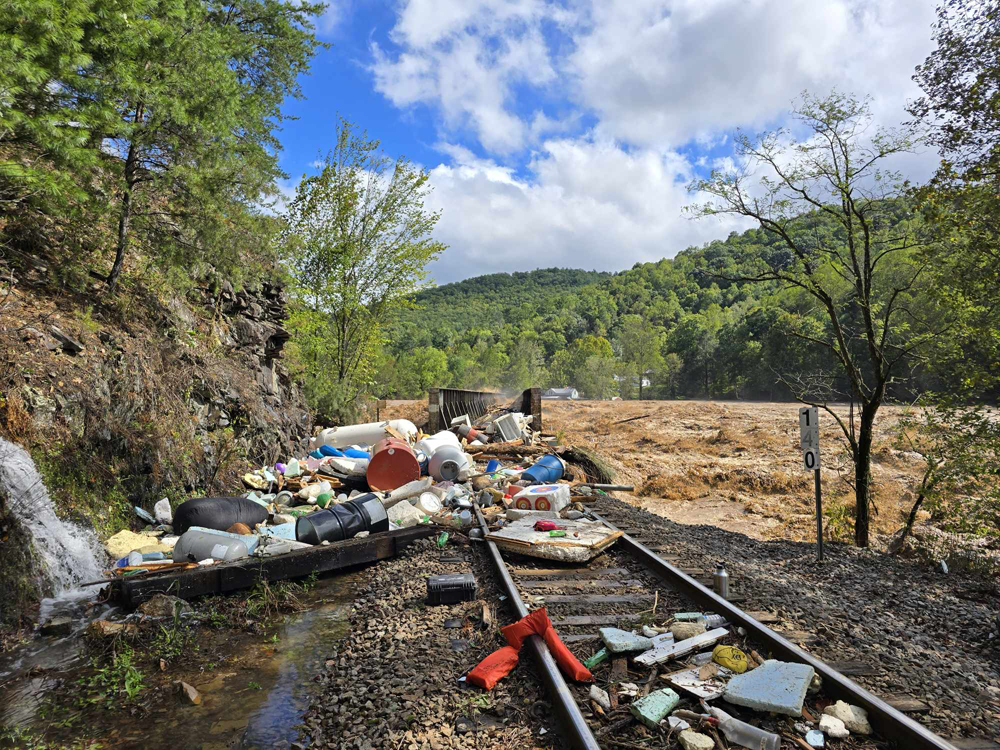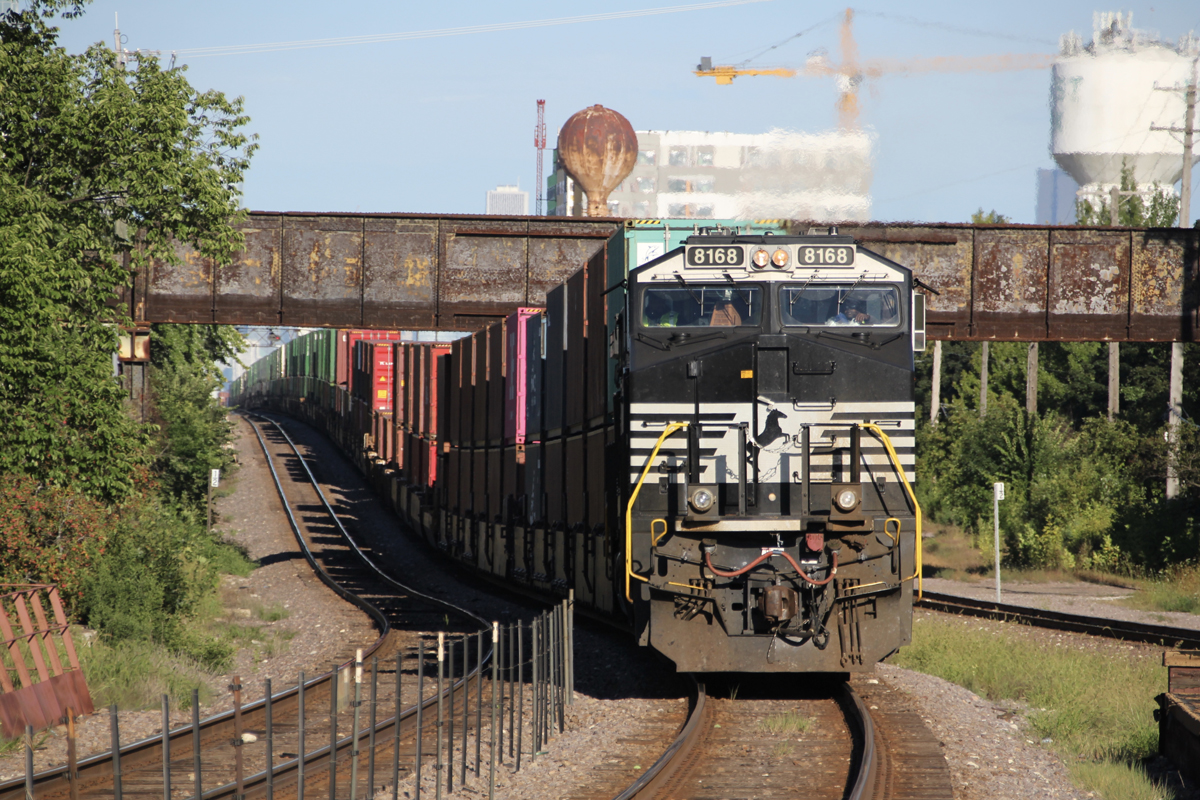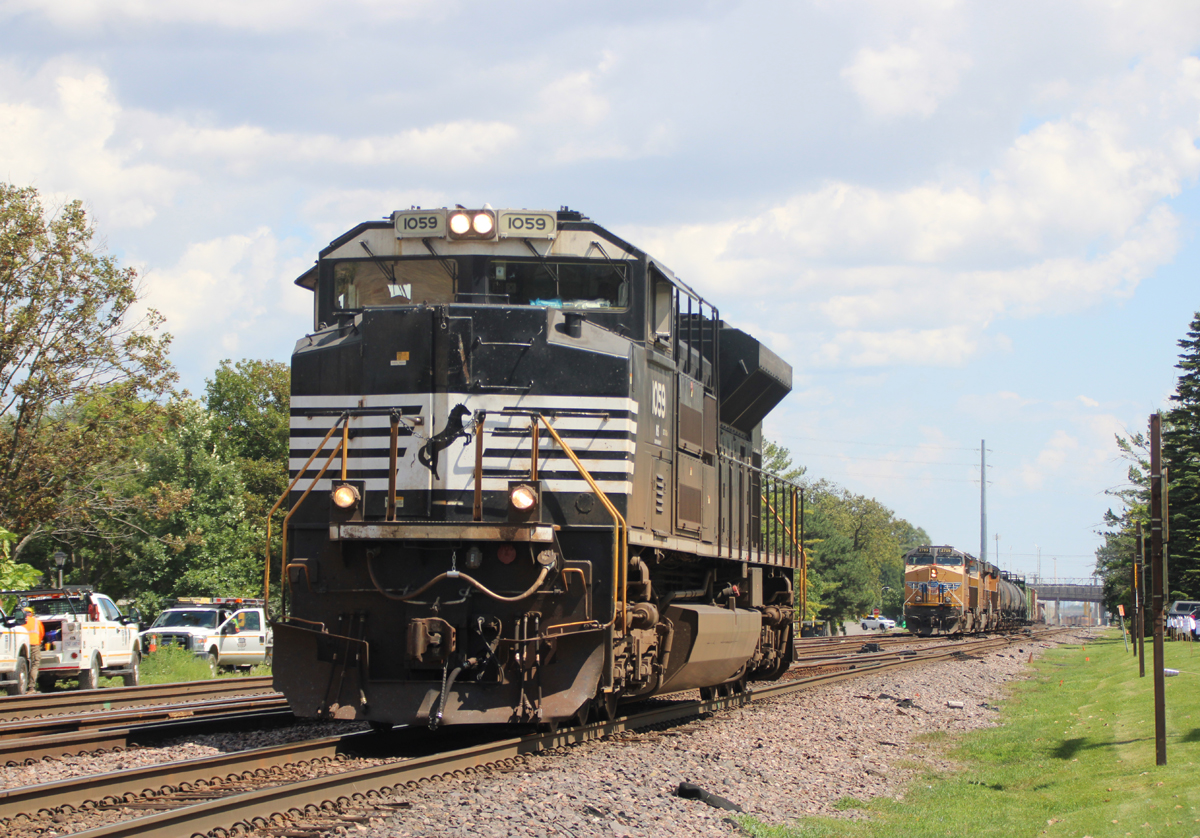
ERWIN, Tenn. — CSX Transportation is being ordered to stop using river rock as fill material in the rebuild of its former Clinchfield Railroad line through the Nolichucky River gorge.
WJHL-TV reports the Tennessee Department of Environment and Conservation issued the notice to the railroad following an investigation that determined CSX was using cobble bars from the river that were below the river’s ordinary high-water mark. Investigators also say the railroad was drilling sections of cut rail into riverbed rock to stabilize its new right-of-way.
Officials ordered the railroad to immediately cease and desist with the removal of cobble bars and drilling into riverbed rock, saying the work is outside the scope of CSX’s permitting and violates the Water Quality Control Act of 1977.
CSX admitted to excavating rock at locations below the ordinary high water mark last month, according to the agency.
In addition to the order, the railroad must submit an aquatic alteration permit application and minimize any disturbances to the river’s substrate. Makeshift roads the railroad has built across the Nolichucky River will need to be removed completely to restore the river to preexisting conditions.
The notice is a win for recreation groups who have been critical of the railroad’s repairs, saying CSX’s actions jeopardize the river’s future navigability by whitewater rafters. Two whitewater groups filed suits to halt the work [see “Whitewater advocates sue federal government …,” Trains News Wire, Nov. 19, 2024]. A federal judge denied the organizations’ request for a temporary restraining order that would have stopped repairs, saying the plaintiffs had not shown how they would suffer “immediate and irreparable harm” [see “Judge denies request …,” News Wire, Nov. 26, 2024].
CSX said in an earlier statement to Trains News Wire that it continues to work with federal and state agencies “to ensure the recovery and restoration is conducted in a safe and environmentally responsible way.” In a court filing, it noted that it is refraining from performing certain work below the high-water mark in North Carolina until an “emergency permit is provided.” It also noted the impacts of the line’s closure, which include furloughs or transfers for more than 30 workers and train reroutes that add an average of 400 miles to every affected shipment.














Abandon the line.
And then subject any number workers and related industries not to mention consumers of all types to either lost jobs and higher prices. This has been an active rail line for some time and should stay in service. Let the Feds and the railroad sort out how to recover the RR rocks in the river and get things back in service.
Mr. Boza, exactly. CSX needs to go scorched earth. If the government wants a railroad there, let government build it, operate it, and maintain it.
Mr. Zwemer, PSE see my note to Mr. Boza. As President Obama once said, “Elections have consequences.”
Mr. Pinckney: I must have missed something but I don not recall any election as to whether or not hurricane Helene wrecked so many lives and property. So what is your reason for quoting President Obama? It seems that to many people forget the old saying “it depends on whose ox is gord” The Federal government allowed CSX to reclaim its property why then should anyone say the railroad is not entitled to what was theirs?
Mr. Zwemer, no doubt the officials at the Tennessee Department of Environment and Conservation, which filed the suit against CSX, reflect the views of the elected Tennessee politicians who appointed them.
Mr. Zwemer, it was a group of “Environmentalists” that filed the suit not TDEC. Also, the Clinchfield is a necessary bypass line of the busy A and S line corridors for CSX.
If all of these rules were in place during the late 19th and early 20th century, much of the railroad and perhaps highway mileage that now exists would not have been built.
Would that have been a great loss to the government?
Well let’s consider the flow of the river before Helene came through and washed most of Clinchfield’s (CSX) roadbed into the river, what CSX is doing might just return the river to what is was before Helene. My damage from Helen is so minor compared with many in NC and the CSX, but I have considerable empathy for those so badly damaged.
IMO the use of river rock probably did not come from very high up. AS wreck foreman may have said use it. In this case do not blame higher management.,
Do any CSX duttoheads realize that mining material from the river bed may impact public or private property rights adjacent or downstream? The flow of the river surely can be affected by the removal of tens of thousands of yards of stone from the river bed. CSX mining of the riverbed may negatively impact highways, bridges, waterworks or other neighbors or users.
This ain’t just about whitewater rafters. CSX is an EXTREMELY profitable business; they can afford to do the restoration correctly.
First rate comment Joseph!
It appears that CSX is only trying to recover their property which was washed into the river, is that not fair to recover one’s property?
Might it be possible to send the extra costs in fixing the Clinchfield (CSX) line to these whitewater groups instead of the railroad and the general public having to bear the costs?
How about CSX follows the law? Why should anyone else pay for their non-compliance? That makes no sense at all.
Ethan, CSX followed the law by obtaining a permit from the Federal Government. The cease and desist from the state sounds like “extra” stuff the article even claims was already discussed and remedied by CSX. Plain and simple, it’s self-serving and should not be happening in the wake of a natural disaster.